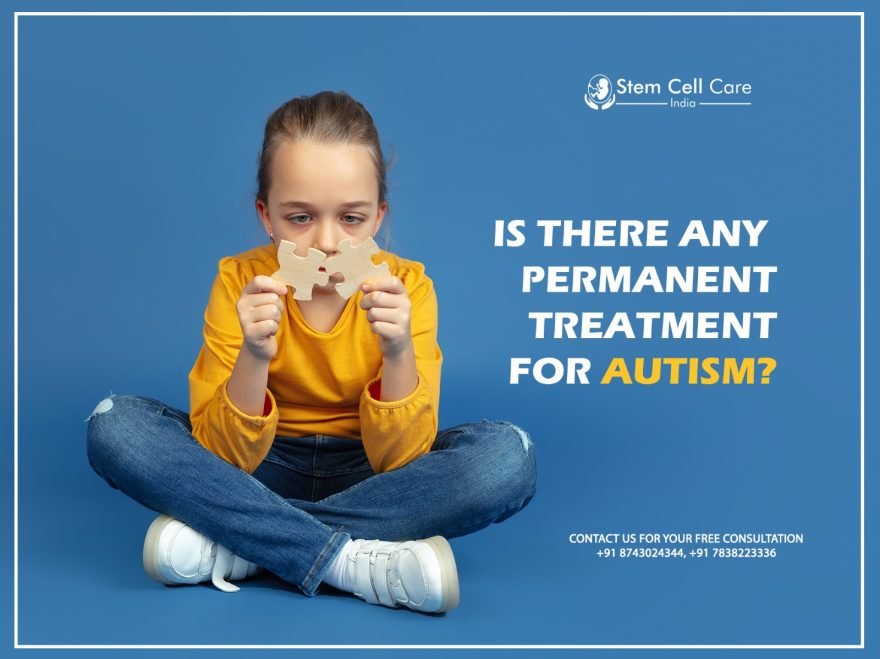Autism Spectrum Disorder (ASD) is a complex, lifelong development condition characterized by challenges in social interaction, communication, and repetitive behaviors, despite significant research and advancement in understanding autism. Finding a permanent treatment remains elusive. In this blog, we will discuss what are the current treatments available for autism, and whether there is any permanent treatment available for autism.
Understanding Autism Spectrum Disorder
Autism is also known as a spectrum disorder because it manifests in a wide range of symptoms and severity levels. People with autism may have:
Communication Difficulties: Challenges in verbal and non-verbal communication.
Social Interaction Issues: Difficulty understanding and engaging in social interaction.
Repetitive Behavior: Repetitive movements and routines and intense focus on specific interests.
Sensory Sensitivities: Over or under-sensitivity to sensory stimuli like sound, light, and touch.
The main cause of autism is still under research, but the combination of genetic, genetic, neurological, and environmental factors is believed to have contributed to its development.
Treatment For Autism
There is no cure for autism, however, there are a number of treatments available that can help manage the symptoms and improve the quality of life. Some of the treatments are given below:
Behavior therapies:
Applied Behavior Analysis (ABA): A widely used approach that encourages positive behaviors and discourages negative ones through reinforcement techniques.
Early Start Denver Model: It focuses on improving cognitive language and social skills in younger children.
Language and Speech Therapy:
It helps individuals with autism improve their communication skills, such as understanding and using language effectively.
Occupational Therapy:
It assists in developing everyday skills managing sensory issues and enhancing independence and daily functioning.
Social Skill Training
It helps individuals with autism navigate social interactions and build relationships.
Medication:
While there is no medication to treat the core symptoms of autism. Some medications can help manage associated conditions such as anxiety hyperactivity and depression.
The Potential of Stem Therapy
Stem cell therapy has emerged as a promising frontier in the treatment of a number of neurological and developmental disorders, including autism. Stem cells have the unique ability to differentiate into a number of cell types, offering potential therapeutic benefits. Given below is how stem cell therapy could potentially help individuals with autism:
- Regeneration of Neural Tissues:
Autism is associated with abnormalities in brain structure and function. Stem cell therapy could potentially repair or regenerate damaged neural tissues, improving brain function and connectivity.
- Modulation of Inflammation:
Inflammation in the brain is believed to play a role in the development of autism. Certain types of stem cells, such as mesenchymal stem cells (MSCs). It has anti-inflammatory properties that could help reduce brain inflammation and protect neural tissues.
- Enhancing Neuroplasticity:
Neuroplasticity, the brain’s ability to reorganize itself by forming new neural connections, is crucial for cognitive function and development. Stem cells might enhance neuroplasticity, aiding in the development of communication and social skills.
- Immune System Regulation:
Autism has been linked to immune system dysregulation. Stem cell therapy could help modulate the immune system, potentially reducing symptoms and improving overall health.
Challenges and Considerations
While the potential of stem cell therapy for autism is exciting, several challenges and considerations must be addressed:
- Safety:
Ensuring the safety of stem cell treatments is paramount. Potential risks include immune rejection, unintended cell differentiation, and tumor formation. Rigorous clinical trials are necessary to establish the safety profile of stem cell therapies.
- Ethical Concerns:
The use of certain types of stem cells, particularly embryonic stem cells, raises ethical questions. Researchers are exploring alternative sources, such as induced pluripotent stem cells (iPSCs) and adult stem cells, to mitigate these concerns.
- Individual Variability:
The effectiveness of stem cell therapy may vary based on the underlying causes and severity of autism. Personalized approaches and careful patient selection are crucial for maximizing therapeutic outcomes.
- Long-Term Effects:
The long-term effects of stem cell therapy are still unknown. Continuous monitoring and follow-up studies are essential to understanding the durability and sustainability of treatment benefits.
Is Permanent Treatment for Autism Possible?
The concept of a “permanent” treatment for autism is complex. Autism is a multifaceted condition with diverse causes and manifestations, making it unlikely that a single treatment will be universally effective. However, significant progress has been made in understanding autism and developing treatments that can dramatically improve the quality of life.
Stem cell therapy holds promise as a potential treatment for autism. It offers advantages such as neural tissue regeneration, inflammation modulation, enhanced neuroplasticity, and immune system regulation. However, more research is needed to fully understand its prospective and address the associated challenges.
Conclusion
While there is currently no permanent cure for autism, ongoing research, including stem cell therapy, offers hope for more effective treatments. As our understanding of autism deepens and new therapeutic approaches are developed. The goal is to improve the lives of individuals with autism and their families. The future of autism treatment lies in a combination of early intervention, personalized therapies, and innovative medical advances like stem cell therapy. With continued research and clinical trials, we move closer to unlocking the potential for meaningful and lasting improvements in the treatment of autism. Stem Cell Care India is one of the leading healthcare consultants in Delhi which helps you to find the best treatment at a very affordable price.


